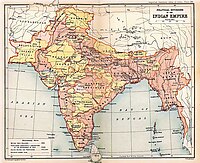
Photo from wikipedia
The concept of exile remains overwhelmingly influenced by the writings of Edward Said, particularly in his development of the ‘contrapuntal’ as a key method in understanding how exile life is… Click to show full abstract
The concept of exile remains overwhelmingly influenced by the writings of Edward Said, particularly in his development of the ‘contrapuntal’ as a key method in understanding how exile life is lived between the ‘homeland’ and the space of ‘exile’. However, by drawing on feminist work which has critiqued the notion of ‘home’ in Said’s work, together with work on subaltern geographies and the politics of friendship, this article argues for a conception of exile that works in between dichotomies of ‘exile’ and ‘home’. In order to make this case, the article draws empirically on the example of the ‘exile’ of a number of Indian anti-colonial revolutionaries in the French-Indian enclave of Pondicherry, India between c.1908 and c.1918, focussing particularly on Subramania Bharati, a Tamil poet and anti-colonial nationalist. Whilst in exile, in his own ‘homeland’ Bharati drew upon, translated and reshaped existing discourses from both ‘Western modernity’ and South Asian culture to create his own particular arguments for a future independent India. This subaltern geography opens up ground for alternative spaces of exile to emerge that challenge dichotomies of home/exile.
Journal Title: Environment and Planning D: Society and Space
Year Published: 2017
Link to full text (if available)
Share on Social Media: Sign Up to like & get
recommendations!